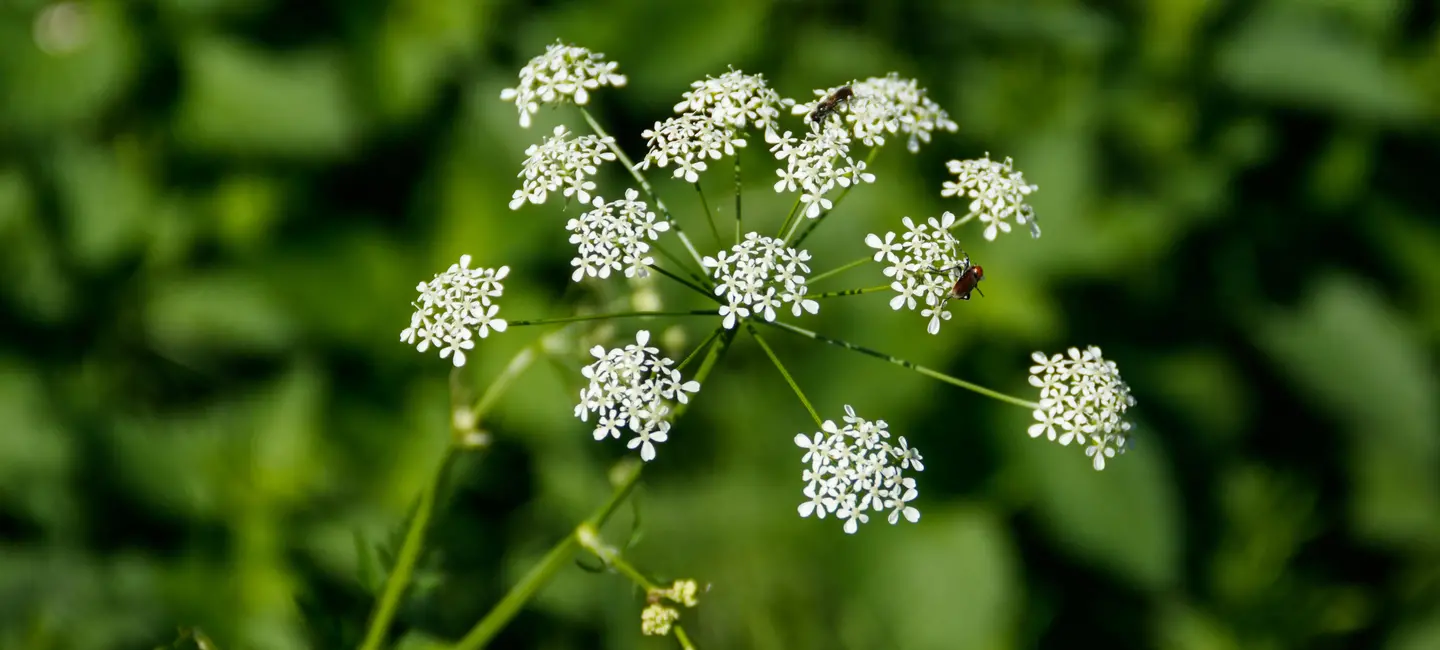
Water hemlock is considered to be the most poisonous plant growing in North America. All parts of the water hemlock are toxic and can cause death in as little as 15 minutes.
Water hemlock grows in marshy, swampy areas of meadows; and along banks of streams, pools, and rivers. Accidental poisonings usually occur when water hemlock is mistaken for edible plants such as artichokes, celery, sweet potatoes, sweet anise, or wild parsnip.
Even though water hemlock is extremely poisonous, it is used as a medicine for migraine headaches, painful menstruation, and worms in the intestines.
Some people apply water hemlock directly to the skin for redness and swelling (inflammation).
Is It Effective?
NatMed Pro rates effectiveness based on scientific evidence according to the following scale: Effective, Likely Effective, Possibly Effective, Possibly Ineffective, Likely Ineffective, Ineffective, and Insufficient Evidence to Rate.
- Migraine headaches.
- Painful menstrual periods.
- Intestinal worms.
- Skin redness and swelling (inflammation), when applied to the affected area.
- Other conditions.
More evidence is needed to rate the effectiveness of water hemlock for these uses.
Is it Safe?
Water hemlock contains ingredients that are poisonous and have many dangerous effects on the body.
Water hemlock is UNSAFE for anyone to take by mouth or apply to the skin. All plant parts are poisonous and can cause death in as little as 15 minutes. Even applying water hemlock to your skin can cause death. Get immediate medical attention if you have taken water hemlock. The first symptoms of water hemlock poisoning are drooling, nausea, vomiting, wheezing, sweating, dizziness, stomach pain, flushing, weakness/tiredness (lethargy), delirium, and uncontrollable bowel movements. These are followed by more serious symptoms including trouble breathing, convulsions, heart problems, kidney failure, coma, and death.
Special Precautions & Warnings:
It is UNSAFE for anyone to use water hemlock, but some people have extra reasons to avoid use.
Children: Use of water hemlock is UNSAFE and can be fatal, especially in children. Children can be poisoned by even small amounts of water hemlock. Some children have died after just using hollow water hemlock stems as peashooters, flutes, or whistles; or rubbing the plant on their skin.
Pregnancy and breast-feeding: Use of water hemlock is UNSAFE and can be fatal for both the mother and her unborn child.
Lithium
Interaction Rating=Moderate Be cautious with this combination.
Water hemlock might have an effect like a water pill or "diuretic." Taking water hemlock might decrease how well the body gets rid of lithium. This could increase how much lithium is in the body and result in serious side effects. Talk with your healthcare provider before using this product if you are taking lithium. Your lithium dose might need to be changed.
There are no known interactions with herbs and supplements.
There are no known interactions with foods.
The appropriate dose of water hemlock depends on several factors such as the user's age, health, and several other conditions. At this time there is not enough scientific information to determine an appropriate range of doses for water hemlock. Keep in mind that natural products are not always necessarily safe and dosages can be important. Be sure to follow relevant directions on product labels and consult your pharmacist or physician or other healthcare professional before using.
Beaver Poison, Brook-Tongue, Carotte à Moreau, Children’s Bane, Cicuta, Cicuta bulbifera, Cicuta californica, Cicuta douglasii, Cicuta mackenzieana, Cicuta maculata, Cicuta occidentalis, Cicuta vagans, Cicuta virosa, Cicutaire Bulbifère, Cicutaire du Nord, Cigüe Aquatique, Ciguë des Marais, Ciguë Vénéneuse, Ciguë Vireuse, Cowbane, Death-of-Man, European Water Hemlock, False Parsley, Fever Root, Mockeel Root, Muskrat Weed, Musquash Root, Persil des Chats, Persil des Fous, Persil des Marais, Poison Parsnip, Sium douglasii, Snake Weed, Snakeroot, Spotted Cowbane, Spotted Hemlock, Spotted Parsley, Wasser-Schierling, Wild Carrot, Wild Dill, Wild Parsnip.
Information on this website is for informational use only and is not intended to replace professional medical advice, diagnosis, or treatment. While evidence-based, it is not guaranteed to be error-free and is not intended to meet any particular user’s needs or requirements or to cover all possible uses, safety concerns, interactions, outcomes, or adverse effects. Always check with your doctor or other medical professional before making healthcare decisions (including taking any medication) and do not delay or disregard seeking medical advice or treatment based on any information displayed on this website.
© TRC Healthcare 2024. All rights reserved. Use and/or distribution is permitted only pursuant to a valid license or other permission from TRC Healthcare.
